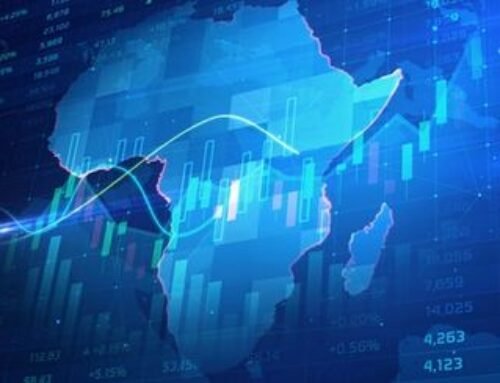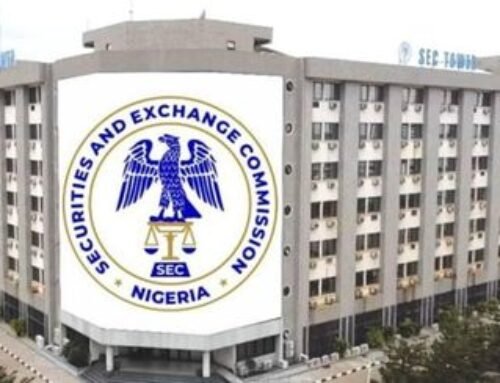The Executive Director Operations, DataPro Limited, Oladele Adeoye, in this interview with Adedayo Adejobi, sheds light on the role of credit rating agencies in defining the health of banks in the country
- THISDAY
- 6 Mar 2019
The health of the Nigerian banks like every other institution, is largely dependent on the economy. If we are to benchmark it against what is obtainable in the economy, you will understand that the weakness in the economy is weakness in the banking industry because banks by virtue of what they do, lend to this economy.

Why do credit rating agencies exist and what is the objective of a rating agency?
A credit rating agency exists basically to provide opinion. A credit rating agency is an opinion giver. They give opinions about the ability of an organisation or an instrument and possibly a country to be able to meet their obligations as and when due. They tell of how healthy organisations are when it comes to their ability to fulfill their obligations.
What sort of debt is rated and how can credit ratings differ among different tranches of debt for an organisation?
Credit ratings are assigned to issuers, bonds, collateralize debt obligations and structured finance obligations. Credit rating at the issuer level indicates the entity’s ability to fulfill its financial obligations, while credit rating at the debt issuance level indicates the credit quality of the specific debt issuance depending on the terms and conditions, legal structure, seniority, priority of repayment, external support, and credit enhancements. The credit ratings are mainly divided between two categories: Investment Grade (BBB and above). Investment Grade issuers have relatively high level of creditworthiness and credit quality. Speculative Grade / Non-Investment Grade (BB and below). Speculative Grade issuers have the ability to repay but face significant uncertainties. Regarding the possibilities of an organisation to issue different instruments having rating differentials, ranking of the debts is a key issue. An instrument with preferential treatment in terms of settlement will certainly be notched above a junior ranking instrument. Another factor will be the available credit enhancement. An instrument that is heavily collateralize will have a high recovery prospect in the event of default as against a zero collateral instrument. Similarly, debt instrument that is fully guaranteed will attract better rating than partially guaranteed obligations. These and a few other reasons will result in differences in the ratings of instruments with common Issuer.
When investment banks provide ratings advisory, do they speak with agencies for guidance?
Rating agencies are not allowed to provide consultation or recommendation on the issue to be rated. Investment bank’s rating advisory can only ask for clarification on the criteria or report and then come up with his/her own recommendation on which direction the rating agency’s opinion may be headed. Rating agencies, however, can provide scenario ratings called Rating Evaluation Service (RES). Investment banks can provide hypothetical scenarios and the Rating Agency can provide a confidential opinion based on each scenario presented.
If you were to do a structural and critical assessment, in your estimation, how healthy are Nigerian financial institutions, especially the banks?
As an analyst, it wouldn’t be right to say yes or no, without actually carrying out analysis. That would mean that I have actually look at all the banks in Nigeria and that is where I come in professionally. We subject a bank to analysis and give opinion, that opinion is represented by a symbol and the symbols tell the state of health of such institution as at that material time. If I haven’t subjected that financial institution, bank or industry to that level of analysis it will be unprofessional for me to say Nigerian banks are healthy or unhealthy. So there’s a need for us to carry out a scientific analysis of those entity and our opinion would then be born out of that objective process.
On the premise that your firm services most of these banks and major financial institutions, one would expect that a holistic approach on the understanding of health of Nigerian banks.
The health of the Nigerian banks like every other institution, is largely dependent on the economy. If we are to benchmark it against what is obtainable in the economy, you will understand that the weakness in the economy is weakness in the banking industry because banks by virtue of what they do, lend to this economy. For instance, if you have a weak oil and gas sector and Nigerian banks become heavily exposed to that sector then you can begin to say on the basis of this, Nigerian banks could be described as weak based on their exposure. Due to uncertainties in the international market regarding oil pricing, projections regarding profitability and serviceability of obligations by operators could be marred. The pricing of oil is currently above 60 dollars per barrel which is the benchmark for the proposed 2019 budget. Unrestrained exposure of the bank to oil could lead to impairment of their healthy status during adverse movement in the price of the commodity. This scenario played out between 2008 and 2010 when some of our banks were seriously exposed to capital markets and oil and gas. It is within that parameter that one can begin to say Nigerian banks are healthy. I want to believe that most banks are going the way of retail today and given the level of credit culture that is coming up, we are yet to see how far that will affect the health of the banks. But what we have seen in the past is this wholesale lending where we have about 10-20 customers accounting for significant proportion of the bank’s loan portfolio. The issue of Governance and compliance also go a long way to determine the health condition of individual bank. A rating agency will not just give assessment until some numbers and issues are given due consideration.
Having understood the role of credit agencies, are there possibilities of the agency being biased in its report?
Let me speak for DataPro. The possibility of being biased is totally out of it and you could glean that from what I’ve said earlier. The parameters, criteria and process are scientific and defined for the purpose of forming that opinion about an entity. And it is only when you look at that particular entity and you benchmark against those criteria that you can come up with an opinion about this particular instrument or entity. Asides that, there are governance issues around the operation, of rating agencies. For an analyst who works in rating agencies, by code of conduct, they are not supposed to be engaged or involved in the rating process in which he/she has substantial interest. I cannot begin to rate an institution in which I have subscribed to a shareholding interest of up to five per cent. My opinion might not be seen as objective. Secondly, in terms of the internal structure, a rating analyst is not supposed to be part of the team that will negotiate the cost of the rating itself. That’s another governance structure that guides the operations of a rating agency. Thirdly, as a rating agency, I cannot provide advisory services on an instrument for which my rating service will be needed. This is not to say that there haven’t been issues especially in developed countries, as rating agencies have received some level of bashing especially during the global financial crisis. Some compromised on governance issue here and there but with the intervention from global bodies like International organisation for security commission (IOSCO) , best practice measures have been introduced for the adoption of rating agencies and this is what we have adopted in our operations in DataPro.
If any case of bias is established against a rating agency in Nigeria, the agency is answerable to the regulatory body, who determines whether their license will hold or be forgone.
Analysts say Nigeria’s economy is out of recession, but there appear to be no glaring effects on trade and commerce. What would be the ideal role of a rating agency in reviving the economy?
Addressing the economy, everyone has their opinion about the economy, but as an analyst, growth is growth. The economy is growing at about two per cent and it’s projected to grow around that figure in 2019. If you’re in recession and we now have some measure of growth in the GDP, it therefore implies that you’ve recorded some measure of growth. Is this growth matching up to the point that will be ultimately beneficial to us given where we are coming from? maybe that’s the point we need to interrogate. And may be those who are arguing against growth are actually talking about real growth. How well are we growing as an entity if our turnover grew by five per cent, but inflation rate is at 10 per cent, you can say the real growth is a negative one if you test it against that backdrop. If the rate of growth we anticipate is not what we are saying then we might say we are growing but at a very slow pace. So I think that’s where the drivers of the economy need to buckle up and I think the poster boy for that will be non -oil sector of the economy. I know that government is doing a lot, but it needs to do more in areas of agriculture, mineral sector, poverty alleviation in terms of entrepreneurial initiatives. The role of Credit Rating Agencies in reviving the economy is firstly the role of an opinion giver. How well the opinion impacts also explain further our role within the economy.
Intra- African trade is considered abysmally low against total world trade. Africa is perceived a high risk destination to do business. What would you say accounts for this, and what are ways to mitigate these issues and expand intra-African trade?
It is correct to note that intra-trade in Africa is the least globally. Europe is about 17 per cent, Asia is 51 per cent and Africa is ridiculously around 15 per cent. High tariffs, level of infrastructure and multiple taxation are leading to high cost across the continent. It is reported by UNCTAD that average tariff for trades in Africa is 8.7 per cent, meanwhile outside the continent is about 2.5 per cent. Infrastructure challenge is another issue using Nigeria as a study. The length of time it takes to clear goods at our major ports and time taken to get in and out of the port area is a challenge. Today, Apapa gridlock is a reference point for traffic congestion in Nigeria. Multiple taxation is also a serious impediment. You have few taxes that are formal while several others are informal. To move goods from Seme border to Balogun market in Lagos, you will need to make series of payments at every road blocks and corner to all kinds of individuals making one spurious claim or the other. To encourage trade within Africa, critical infrastructures such as port and rail system need to be enhanced. This should be done in addition to the review of tariffs currently in operation across the continent.





